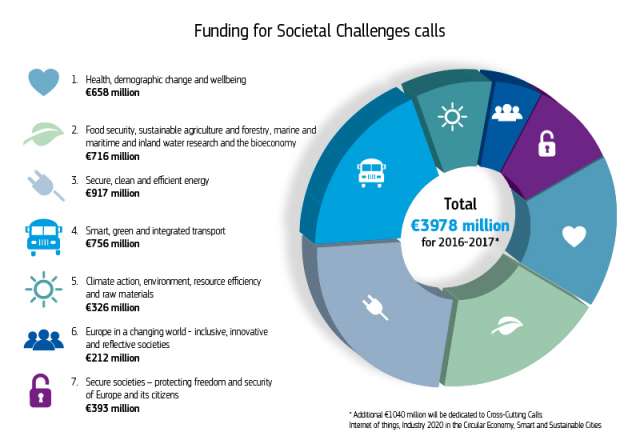The EU has announced a renewed focus on creating jobs, growth and investment as it revealed €16 billion to fund research in 2016 and 2017.
“The point is not the €16 billion, but its impact on our lives,” Carlos Moedas, European Commissioner for Research, Science and Innovation, told a press briefing on 13 October.
It is the second work programme announced under the €77 billion Horizon 2020 programme, the EU’s biggest-ever research fund.
Research topics have been chosen to support the policy priorities of European Commission President Jean-Claude Juncker, the most important of which is jobs, growth and investment.
It means there has been a significant increase in funding for small and medium-sized enterprises (SMEs) – often called the backbone of the European economy because of their potential to generate jobs and growth. Overall, SMEs will be able to access €2 billion in funding over the next two years under the new work programme.
In total, the work programme sets aside €3.4 billion for industrial leadership, which includes information and communication technology, where there will be calls focusing on areas such as the internet of things.
“The big challenge for research, science and innovation is how can you get to this merger between the physical and the digital world,” Commissioner Moedas said. “For me it has been about this change of how you can get Europe, that has such a traditional and fantastic physical industry, to actually go up the ladder to the digital world.”
The programme supports cross-cutting initiatives, the biggest of which is the modernisation of Europe’s manufacturing industry, where €1 billion is available for research.
Most funding under Horizon 2020 is issued through challenge-based calls, where research consortiums are invited to solve specific problems. Almost €4 billion has been set aside in the programme for calls relating to societal challenges such as food security and demographic change.
However, a large proportion of the money is also available to researchers so that they can define the research areas themselves and make proposals, allowing research funding to be channelled to frontier research that may not have immediate practical applications.
That includes over €3.3 billion – worth around 2 000 grants – for the European Research Council (ERC), and almost €1.6 billion for Marie Skłodowska-Curie actions.
The programme includes targeted calls to tackle some of the most pressing issues facing Europe.
At least €8 million is available for research on the security of EU's external borders, to help identify and prevent human trafficking and smuggling, and €15 million for research into the origin and impact of migration flows in Europe.
In line with Commissioner Moedas' “Open Science, Open Innovation, Open to the World” agenda, the programme is designed to strengthen the research cooperation with other countries that is already ongoing.
“We are doing joint calls with Brazil, with Japan, with Korea,” he said. “We have signed an agreement with China to collaborate in terms of research.”




